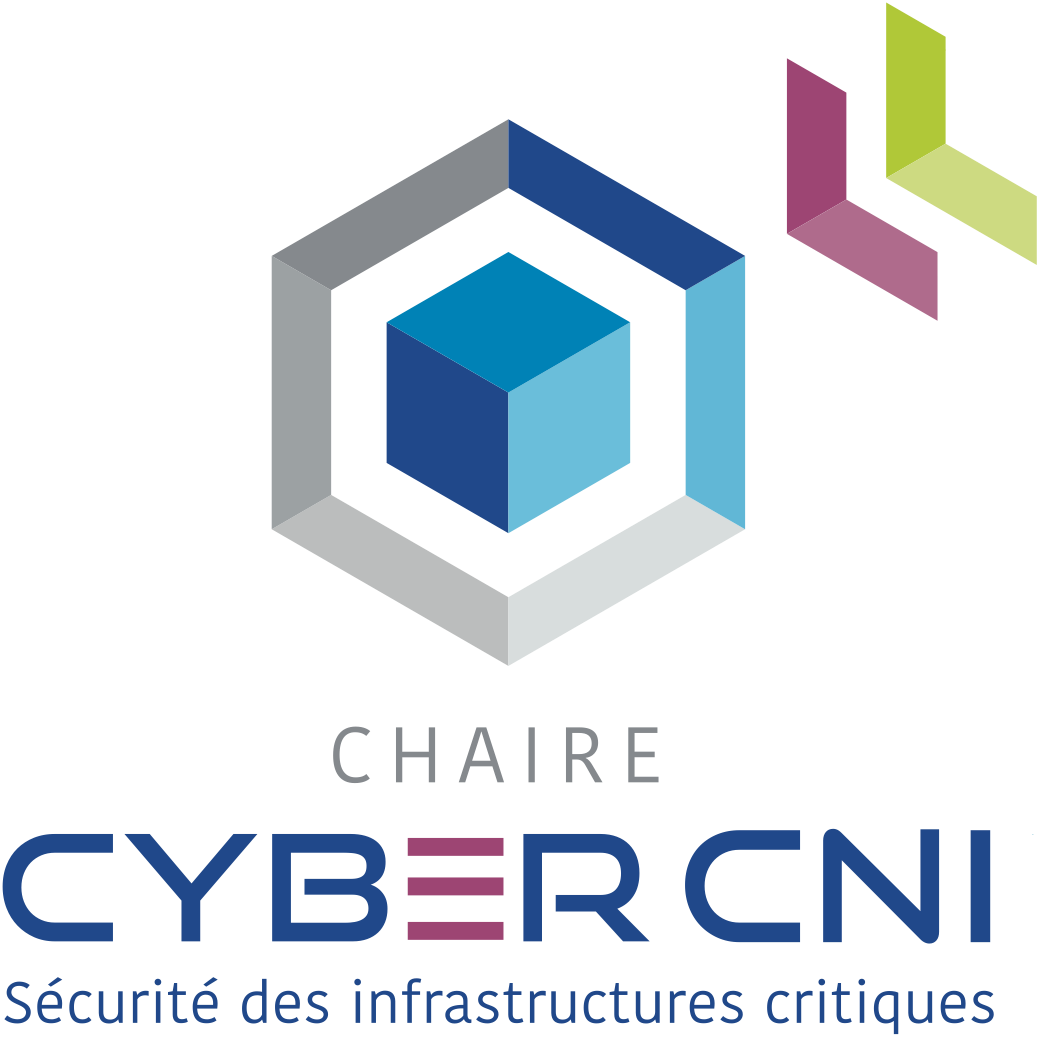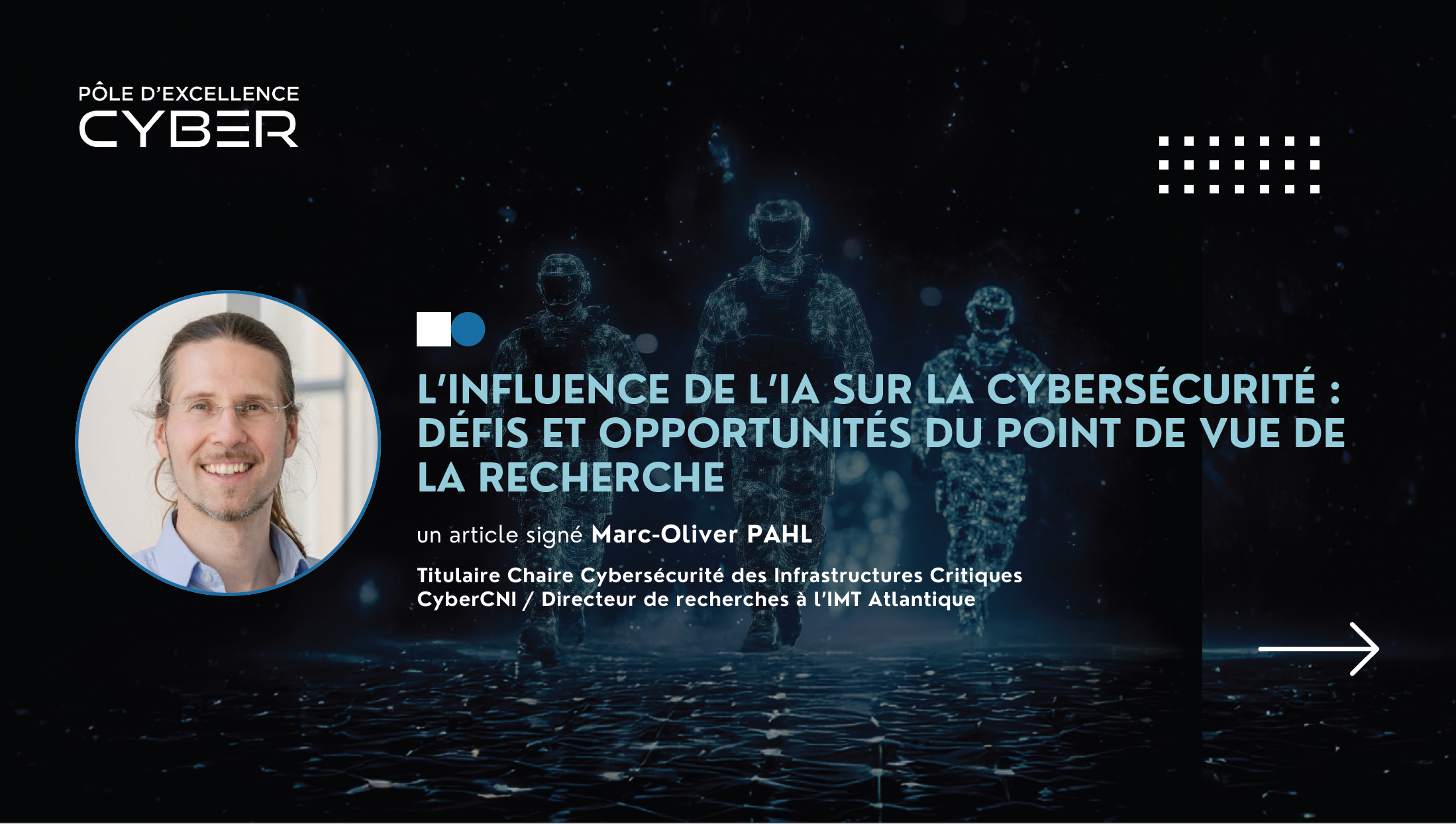[RU2/22] Léo LAVAUR – Federated Approaches for Defending Cyber-Attacks
On Oct 17, 2022, our PhD Léo LAVAUR presented her latest results regarding “Federated Approaches for Defending Cyber-Attacks“. This presentation took place during the research update fall 2022 event of the chair Cybersecurity for Critical Networked Infrastructures (cyberCNI.fr) at the SNCF Head Office. You find more infos on our website https://cyberCNI.fr/
We cordially invite you to contact us for collaborations, partnerships, etc. We are constantly looking for new industry partners to strengthen our profile. Make an appointment to find out more!
To see the video, click on this link : https://youtu.be/BwgZJKqKG3U
Abstract
In 2016, Google introduced the concept of Federated Learning (FL), enabling collaborative Machine Learning (ML). FL does not share local data but ML models, offering applications in diverse domains. FL has been studied to overcome challenges of collaborative intrusion detection and mitigation systems. Current research focuses on applying these concepts to specific use cases, such as smart factories, autonomous vehicles, or smart healthcare. Therefore, this thesis addresses current limitations of federated intrusion detection and mitigation systems (FIDS) in terms of transferability, adaptability and scalability. The chair’s realistic test beds will be used to host experiments and validate our hypotheses. The long-term objective is to build a distributed and federated observatory for attack detection, characterization, and mitigation.
About Léo LAVAUR
Before starting my PhD at IMT Atlantique and the chair, I’ve made an engineering degree in information security and the defense of critical infrastructure at ENSIBS, Vannes, France. These years have brought me a lot of skills and knowledge on the whole spectrum of cybersecurity— from reverse engineering to geostrategy and ethics—allowing me to be extremely versatile on that regard. I spent the last four years of my studies on a work-study program. During that time, I worked as a security analyst at Orange Cyberdefense where I was able to acquire many concrete skills in computer science, application security, embedded systems and wireless networking. I also have been involved in many side projects like the RedHack CTF, in which I had the opportunity to improve my administration skills by deploying realistic virtual networks and hundreds of machines on an Airbus CyberRange.
About Research Update
The cyberCNI.fr Research Updates happen once per semester. They are our big status event where our PhD students, PostDocs, and Engineers present their progress, current works, and next challenges. The research update is the perfect opportunity for getting an overview on and discussing what is going on at the chair.
About the chair Cybersecurity of Critical Networked Infrastructures (cyberCNI.fr)
The Cyber CNI Chair at IMT Atlantique does research, innovation, and teaching in the field of cybersecurity for critical networked infrastructures. Such infrastructures include industrial processes, financial systems, building automation, energy networks, water treatment plants, or transportation.
The chair covers the full stack from sensors and actuators and their signals over industrial control systems, distributed services at the edge or cloud, to user interfaces with collaborative Mixed Reality, and security policies. The chair currently hosts 9 PhD students, 4 PostDocs, 11 Professors, 1 engineer, and 1 internship student.
The chair runs a large testbed that enables applied research together with the industry partners. The industry partners of the current third funding round are Airbus, BNP Paribas, EDF, and SNCF. The chaire is located in Brittany, France. Brittany is the cybersecurity region number 1 in France. The chair Cyber CNI is strongly embedded in the cybersecurity ecosystem through its partnerships with the Pôle d’Excellence Cyber (PEC) and the Brittany Region.
The chair provides a unique environment for cybersecurity research with lots of development possibilities.
- Les AFTERS by Pôle Excellence Cyber - April 7, 2023
- Federated Learning as enabler for Collaborative Security between not Fully-Trusting Distributed Parties - February 10, 2023
- [RU2/22] Anthony DAVID : Virtual Reality for cybersecurity data vizualisation - December 21, 2022









